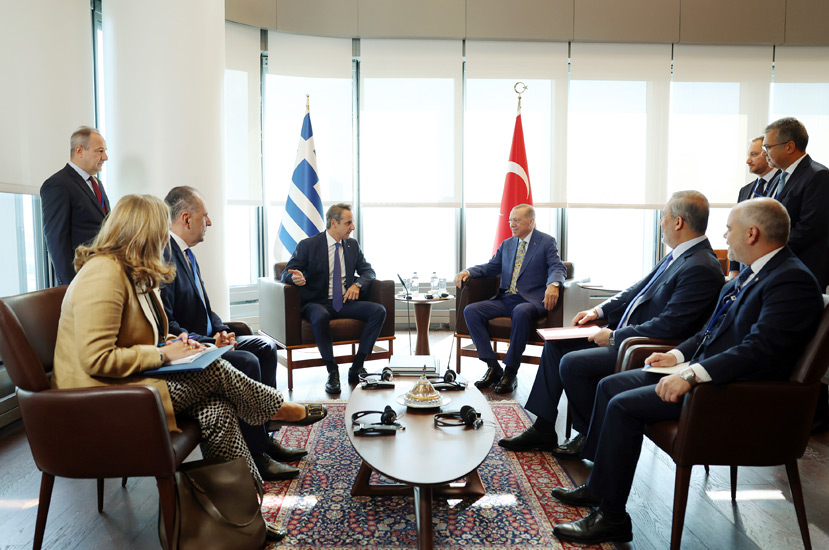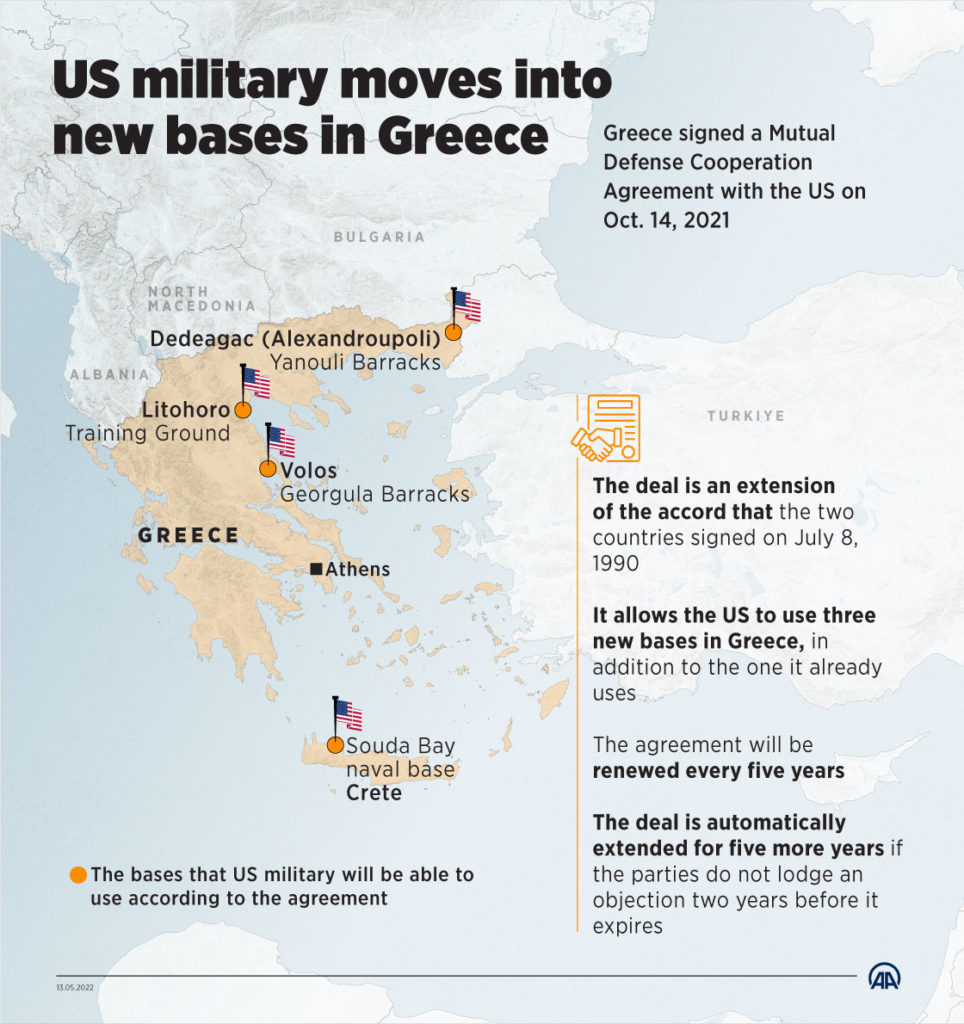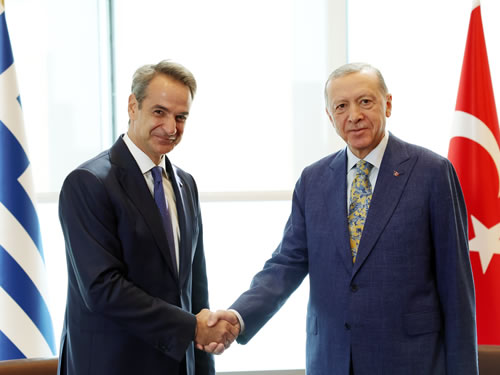Levent Kenez/Stockholm
Turkish President Recep Tayyip Erdogan is scheduled to be in Athens on December 7 for the fifth meeting of the Turkish-Greek High-Level Cooperation Council, expressing hope that the visit marks the beginning of a new era between Turkey and Greece. According to Erdogan, the United States is hindering the improvement of bilateral relations between the two countries.
During a December 2 press briefing for journalists close to his government, Erdogan highlighted the ties between Turkey and Greece ahead of his upcoming visit. He voiced dissatisfaction with the continued promotion of hostilities, emphasizing that it is not fitting for two countries with such interconnected histories to be fueled by divisive rhetoric.
However, in previous years, Erdogan repeatedly warned Greece that a newly produced indigenous missile called Tayfun could target the Greek capital, further heightening tensions between the two countries.
In a speech delivered on December 11, 2022, Erdogan declared, “Now we have started to make our own missiles. … Of course, this production scares the Greeks. When you say ‘Tayfun,’ the Greeks get scared and say, ‘It will hit Athens.’ Well, of course, it will,” he added.
Erdogan also emphasized the consequences if Greece continues to amass weapons on the islands, “a country like Turkey will not be a bystander.”

The increased rhetoric from Turkey against Greece stemmed from Ankara’s perception of a growing military presence on the Greek Aegean islands near Turkey’s coastline. Erdogan consistently hinted at potential actions, stating, “We can come suddenly one night when the time is right.”
“On the other hand, who is provoking us? At this point, when we look at it, the United States in particular is making efforts to drive us apart,” Erdogan told journalists last week.
Erdogan pointed out that the United States has not sold F-16s to Turkey but has instead sold these aircraft to Greece, stating that that is unacceptable.
Turkey’s most significant procurement challenge involves acquiring new F-16 fighter jets from the United States to upgrade its outdated fleet. In 2021 the US administration officially removed Turkey from the F-35 Joint Strike Fighter program due to Ankara’s purchase of a Russian S-400 missile system in 2017.
The US also expects Turkey to promptly approve Sweden’s NATO membership in order to remove the obstacles in the way of the F-16 sale to Turkey. Turkey aims to use the payment it previously made for the F-35 program for the F-16 purchase, but so far, there has been no clarity in the negotiations.
Erdogan indicated to journalists that despite Turkey having paid for the aircraft, it was unable to acquire them from the United States. However, it appears that Erdogan deliberately confused the funds paid to the F-35 program with the intended purchase of F-16s.
In May 2022, following a Cabinet meeting, Erdogan harshly criticized Greek Prime Minister Kyriakos Mitsotakis, who had asked during an address to the US Congress that the US decline to sell dozens of F-16 fighter jets to Turkey.
The US got its share of Erdogan’s anger as he criticized the US’s growing military presence in the neighboring country. “There are nearly 10 [US] bases in Greece,” he claimed. “Who is being threatened with these bases? Why are these bases being established in Greece?”
Erdogan had previously stated that Greece itself had become a US military base.

The supposed US military bases in Greece are frequently brought up by the government-funded Turkish media and nationalist circles that support the government. Claiming that US bases are targeting Turkey, pro-government experts give contradictory numbers of bases.
However, there’s only one actual US base in Greece, at Souda Bay, which the US has operated since 1969. American forces have been granted access to four additional Greek bases according to the US-Greece Mutual Defense Cooperation Agreement (MDCA) signed in October 2021 and ratified by the Greek parliament on May 13.
During the press briefing last week, Erdogan said while there are certain areas of disagreement and deep-seated issues that won’t be resolved overnight, there are also topics where quick solutions can be found, fostering cooperation with Greece. Emphasizing the potential for initiating a new era, upholding commitments and cultivating relationships free from external influence, he believes that mutual benefits can be achieved. Erdogan has underlined that Turkey’s foreign policy isn’t centered on a zero-sum game but rather embraces a “win-win” strategy as he prepares to visit Athens.
Following his re-election in May, Erdogan signaled a new foreign policy aimed at improving relations with countries where Turkey had previously encountered challenges. In addition to efforts with Israel, the United Arab Emirates and Egypt, he included Greece in this initiative. In September, during his meeting in New York with Mitsotakis, both declared a consensus on enhancing relations between the two nations.












